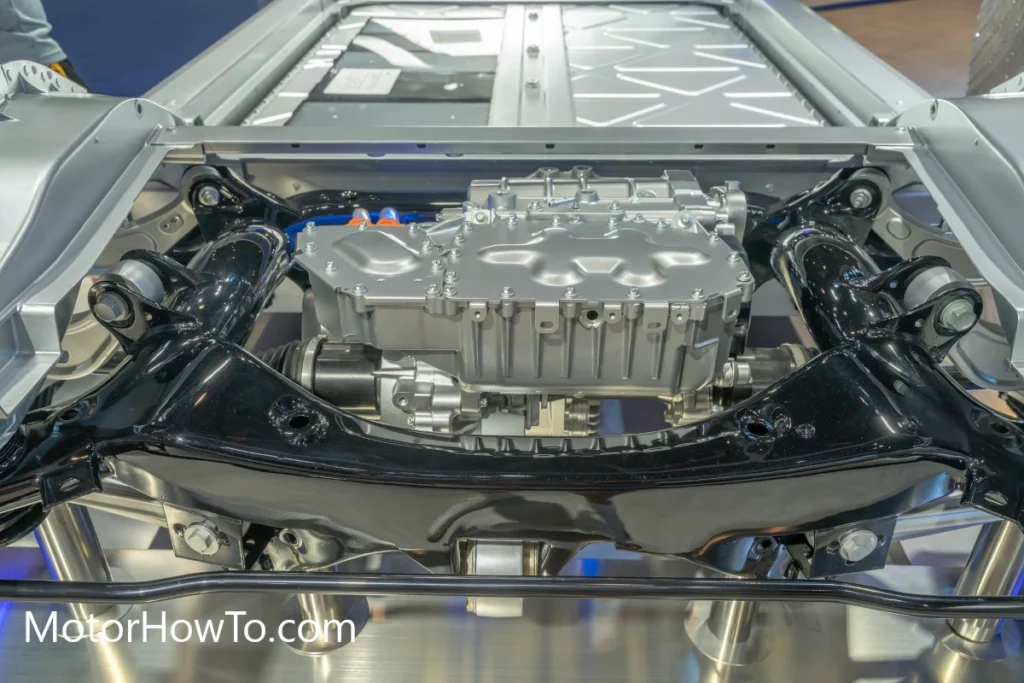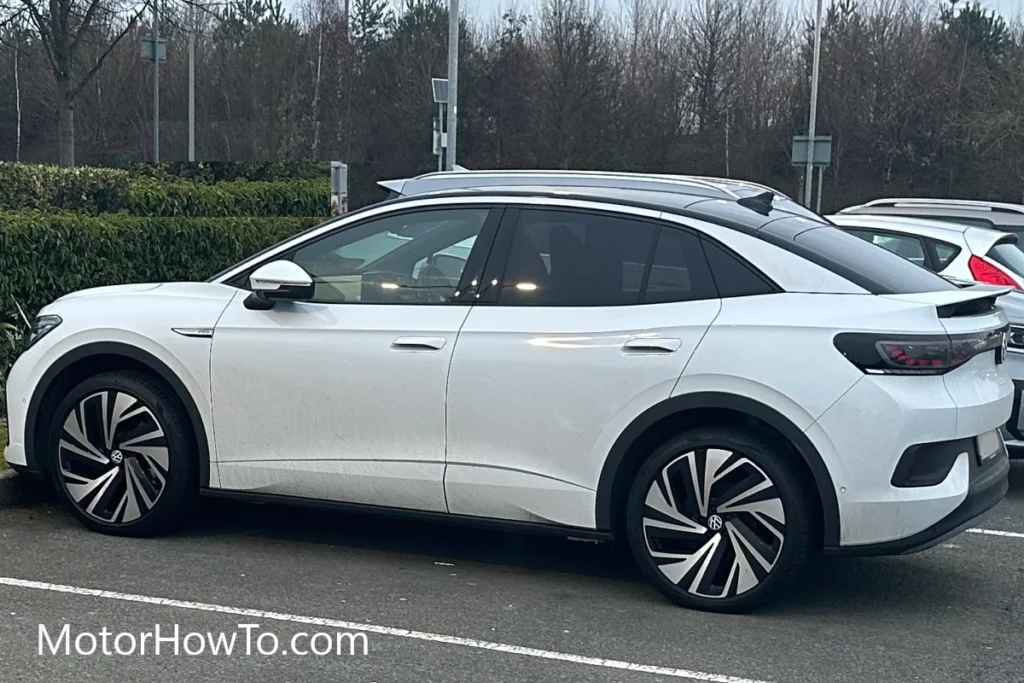Electric vehicles (EVs) are gaining popularity as a sustainable mode of transportation. One of the main concerns is the lifespan of the electric motor.
So, how many miles does the average EV motor last? The answer is complex, depending on driving style, battery health, and maintenance.
In this article, we will explore the expected lifespan of an EV motor and what affects it.
According to most car makers, the average electric vehicle (EV) motor is designed to last at least 150,000 miles. Some EV motors can last even longer, with some lasting up to 300,000 miles or more. The actual mileage will depend on how the vehicle is used and how well it is maintained.

Understanding the longevity of an EV motor is crucial in making an informed decision when purchasing an electric vehicle.
Many automakers provide warranties for the motor, but it’s important to understand the real-world performance and what to expect in terms of lifespan.
This article will provide a comprehensive look at the factors that impact the lifespan of an EV motor and what you can do to extend it.
Related:
- What If People Can’t Afford An Electric Car? (Answered)
- If You Can’t Afford Gas Buy An Electric Car (Explained)
- What Is The Toughest Part Of Building An Electric Car? (Explained)
Are Ev Engines Reliable?
The reliability of electric vehicle (EV) engines depends on several factors, such as the quality of components used, regular maintenance, and proper usage.
With fewer moving parts compared to internal combustion engines, the possibility of things going wrong reduces drastically in EVs and requires less maintenance.
The electric motor in an EV typically has a longer lifespan than a traditional engine and requires less routine maintenance.
However, the battery is the most critical component in an EV, and its reliability and lifespan can significantly impact the vehicle’s overall reliability.
Battery technology is continuously improving, and newer EVs have advanced battery management systems to extend battery life.
Proper usage and maintenance can also help extend the life of the battery. It is important to note that the reliability of an EV will also vary depending on the manufacturer and model.
Will An Ev Last 300000 Miles?
Electric vehicles (EVs) have been around for some time but have only recently become more popular as technological advances make them more efficient and cost-effective.
While many EVs have a range of up to 300 miles on a single charge, the longevity of their battery packs is a common concern.
While a typical battery pack may last up to 10 years, it is not yet known how many miles it can last.
Some EV owners have claimed that their vehicles have gone over 300,000 miles without needing to replace the battery packs, which could indicate that an EV can last that long if properly cared for and maintained.
However, there needs to be more data to confirm this, and the longevity of an EV’s battery pack will likely depend on various factors.
Do Electric Car Motors Wear Out
Electric car (EV) motors are designed to be durable and long-lasting, with many electric vehicle manufacturers providing warranties for motors much longer than those for internal combustion engines.
The electric motor in an EV typically has fewer moving parts than an internal combustion engine, meaning fewer parts can wear out or fail.
Proper usage and maintenance of an electric vehicle can help extend the motor’s life and maintain its performance over time.
But, it is important to note that the performance of an electric motor can degrade over time, especially if the vehicle is frequently driven at maximum power for extended periods.
Also, factors such as high temperatures, exposure to dust and moisture, and other environmental factors can impact the lifespan and performance of an electric motor.
How Many Miles Do Electric Cars Last On One Charge
The number of miles an electric vehicle (EV) can travel on a single charge depends on several factors, such as the size of the battery, driving conditions, and individual driving habits.
On average, newer EVs range around 250 to 350 miles per charge, although this can vary greatly depending on the model and manufacturer, so some cars can go as far as 500 miles.
It is important to note that the range of an EV can be affected by several factors, such as high temperatures, highway speeds, air conditioning usage, and terrain.
Driving at high speeds, using air conditioning, and driving in hilly terrain can reduce an EV’s range.
Factors such as age, wear and tear, and weather conditions can also impact the range of an EV over time.
To get the most accurate estimate of an EV’s range, it is best to consult the manufacturer’s specifications or perform real-world tests.
Will Electric Cars Last 10 Years?
The lifespan of an electric vehicle (EV) is influenced by several factors, such as the quality of components used, regular maintenance, and proper usage.
Generally, newer EVs are designed with high-quality components and advanced battery management systems to extend their lifespan.
Many electric vehicle manufacturers offer warranties for their vehicles that cover several years.
The lifespan of an EV’s battery is one of the most critical factors in determining the overall lifespan of the vehicle.
The battery is designed to degrade over time, and its performance will gradually decline as it ages.
An EV can last ten years or more with proper usage and maintenance. However, the rate at which this happens EV can depend on several factors, such as usage patterns, temperature, and the type of battery.
The overall lifespan of an EV will also depend on factors such as the manufacturer, model, and individual driving conditions.
Which Electric Car Will Last The Longest
The longevity of an electric vehicle (EV) is determined by several factors, such as the quality of components used, regular maintenance, and proper usage. No single electric car can be said to be the longest-lasting, as the lifespan of an EV will depend on various factors specific to each model and manufacturer.
However, EVs from well-established automakers with a reputation for producing high-quality vehicles tend to be reliable and have longer lifespans. Some of the most popular EV brands, such as Tesla, Nissan, and Chevrolet, have models that have proven to be durable and long-lasting.
The lifespan of an EV will also depend on the type of battery it uses, the driving conditions and habits of the owner, and the regularity of maintenance and upkeep. It is advisable to research and compare the reliability, warranty, and maintenance costs of different EV models before making a purchase.
Conclusion
The lifespan of an electric vehicle (EV) is determined by several factors, including the quality of components used, proper maintenance, and individual driving habits.
Electric vehicle motors typically have a longer lifespan and require less routine maintenance than traditional internal combustion engines.
The battery is the most critical component in an EV, and its reliability and lifespan can significantly impact the vehicle’s overall reliability.
Proper usage and maintenance, as well as continuous improvements in battery technology, can help extend the life of an EV.
The overall lifespan of an EV will vary depending on the manufacturer, model, and individual driving conditions, making it difficult to determine which electric car will last the longest.
Ultimately, proper usage and maintenance are key in ensuring the longevity and reliability of an electric vehicle.
Sources
EV Lifespan: Do They Last as Long as Gasoline Cars?
Electric vehicles are not reliable — yet: Consumer Reports
Can Electric Cars Last 300k Miles?
Maintenance and Safety of Electric Vehicles
Electric Car Range: How Far Can An EV Go In One Charge?



